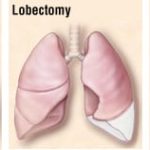1. Erlotinib showed an overall survival benefit and improved 5-year survival rates when compared to chemotherapy.
2. Disease-free survival was significantly better in the erlotinib arm than with chemotherapy in the intention-to-treat population and per-protocol populations.
Evidence Rating Level: 1 (Excellent)
Study Rundown: Patients with non-small cell lung cancer (NSCLC) who undergo complete resection tend to frequently have disease recurrence despite recent improvements in cancer therapy. A previous study (EVAN) explored the use of erlotinib (an epidermal growth factor receptor tyrosine kinase inhibitor [EGFR-TKI]) versus vinorelbine/cisplatin as adjuvant chemotherapy options after complete resection in patients with stage III EGFR-mutant NSCLC. This study describes the updated results of the EVAN study. Updated disease-free survival (DFS) data was obtained and the DFS was significantly better with erlotinib than with chemotherapy in the intention-to-treat (ITT) and per-protocol populations. Median overall survival (OS) and 5-year survival rates were significantly higher in the erlotinib arm. Whole-exome sequencing (WES) was performed and while one single-nucleotide polymorphism (SNP) mutation was found to be associated with significantly worse DFS in the erlotinib-arm, there was no statistical association with OS and DFS. Limitations to this study include its generalizability due to its solely Chinese population and advanced disease stage population, which yields no information on treatment benefits to earlier disease stages. The strength of this study is that it expanded upon its previous report and that it showed an OS benefit in NSCLC patients who typically experience modest survival rates. Overall, erlotinib is a promising option for patients with R0 resection stage III EGFR-mutant NSCLC.
Click to read the study in the JCO
Relevant Reading: Role of chemotherapy and targeted therapy in early-stage non-small cell lung cancer
In-Depth [randomized control trial]: This phase II trial included 102 patients with stage IIIA EGFR-mutant NSCLC who underwent complete resection. Patients were randomly assigned in a 1:1 ratio to receive erlotinib or vinorelbine plus cisplatin as adjuvant chemotherapy; 51 patients were in each arm. Median follow-up was 54.8 months and 63.9 months in the erlotinib and chemotherapy arms, respectively, with updated results at the 43-month follow-up. In the erlotinib arm, 5-year DFS in the ITT population was 48.2% (95% confidence interval [CI], 29.4 to 64.7) and 46.2% (95% CI, 27.6 to 62.9) in the per-protocol population. 5-year DFS for the chemotherapy arm could not be calculated due to either the endpoint being reached or the patients being censored at the end of follow-up. DFS was statistically better with erlotinib in the ITT population (hazard ratio [HR], 0.38; 95% CI, 0.20 to 0.70; P<0.001) and in the per-protocol population (HR, 0.46; 95% CI, 0.24 to 0.88; P=0.008). Median OS was 84.2 months (95% CI, 78.1 to not evaluable) and 61.1 months (95% CI, 39.6 to 82.1) with erlotinib and chemotherapy, respectively (HR, 0.318; 95% CI, 0.151 to 0.670). 5-year survival rates were 84.8% (95% CI, 72.0 to 97.6) and 51.1% (95% CI, 34.7 to 67.5), respectively. WES found the SNP mutation UBXN11 in the erlotinib-treated patients to be associated with significantly worse DFS (P=0.01), but there was no association with OS and DFS. Overall, erlotinib showed an overall survival benefit in stage IIIA EGFR-mutant NSCLC patients.
Image: PD
©2022 2 Minute Medicine, Inc. All rights reserved. No works may be reproduced without expressed written consent from 2 Minute Medicine, Inc. Inquire about licensing here. No article should be construed as medical advice and is not intended as such by the authors or by 2 Minute Medicine, Inc.


